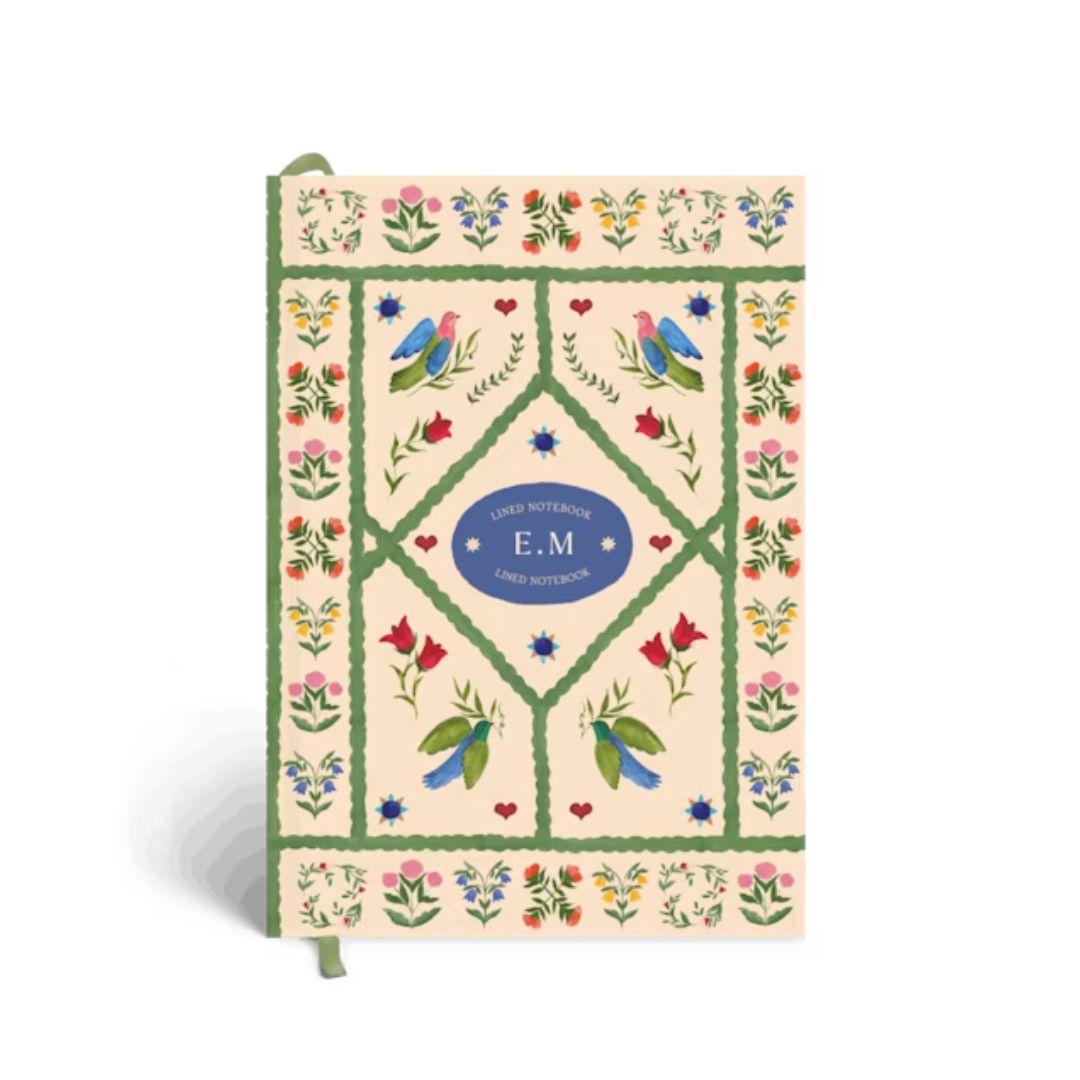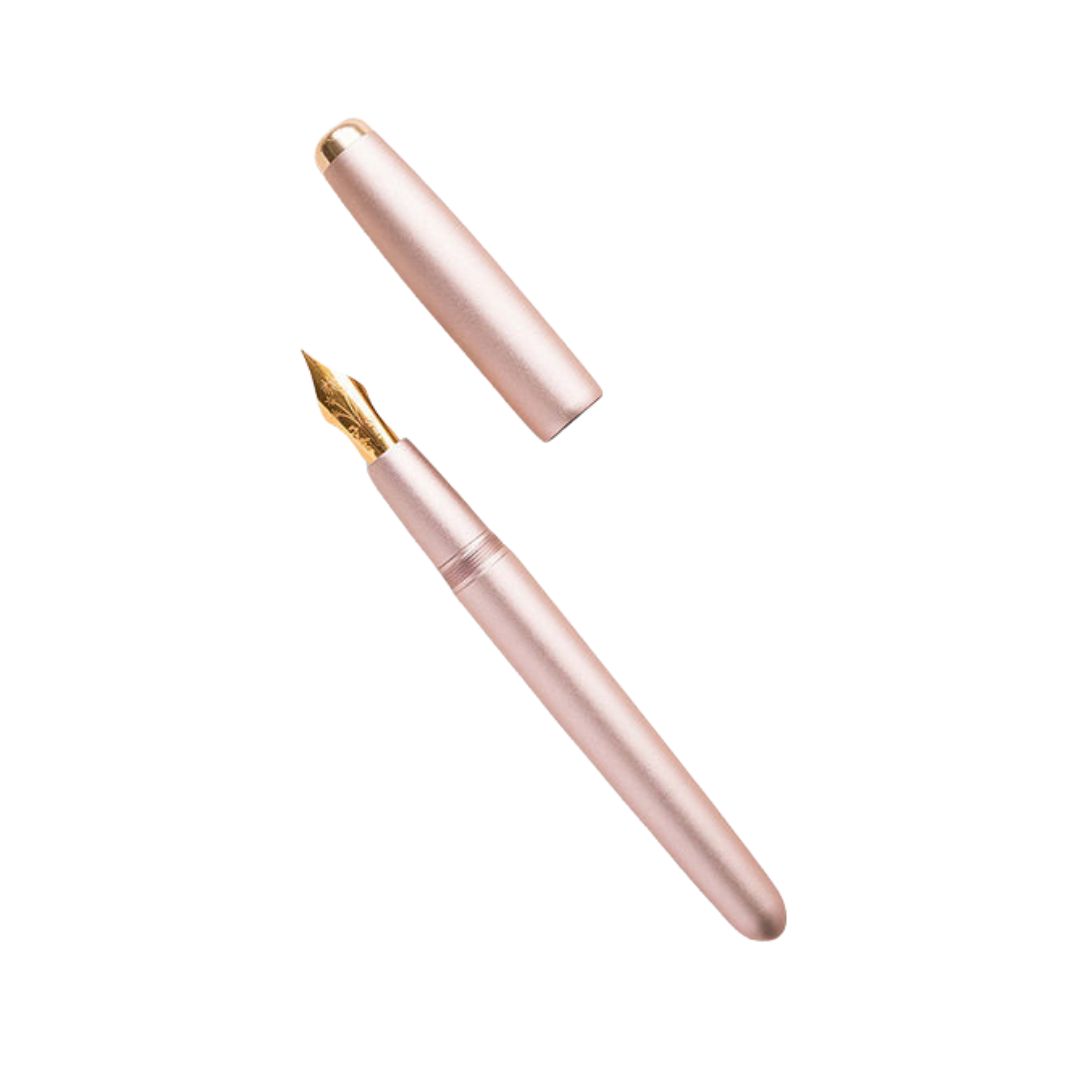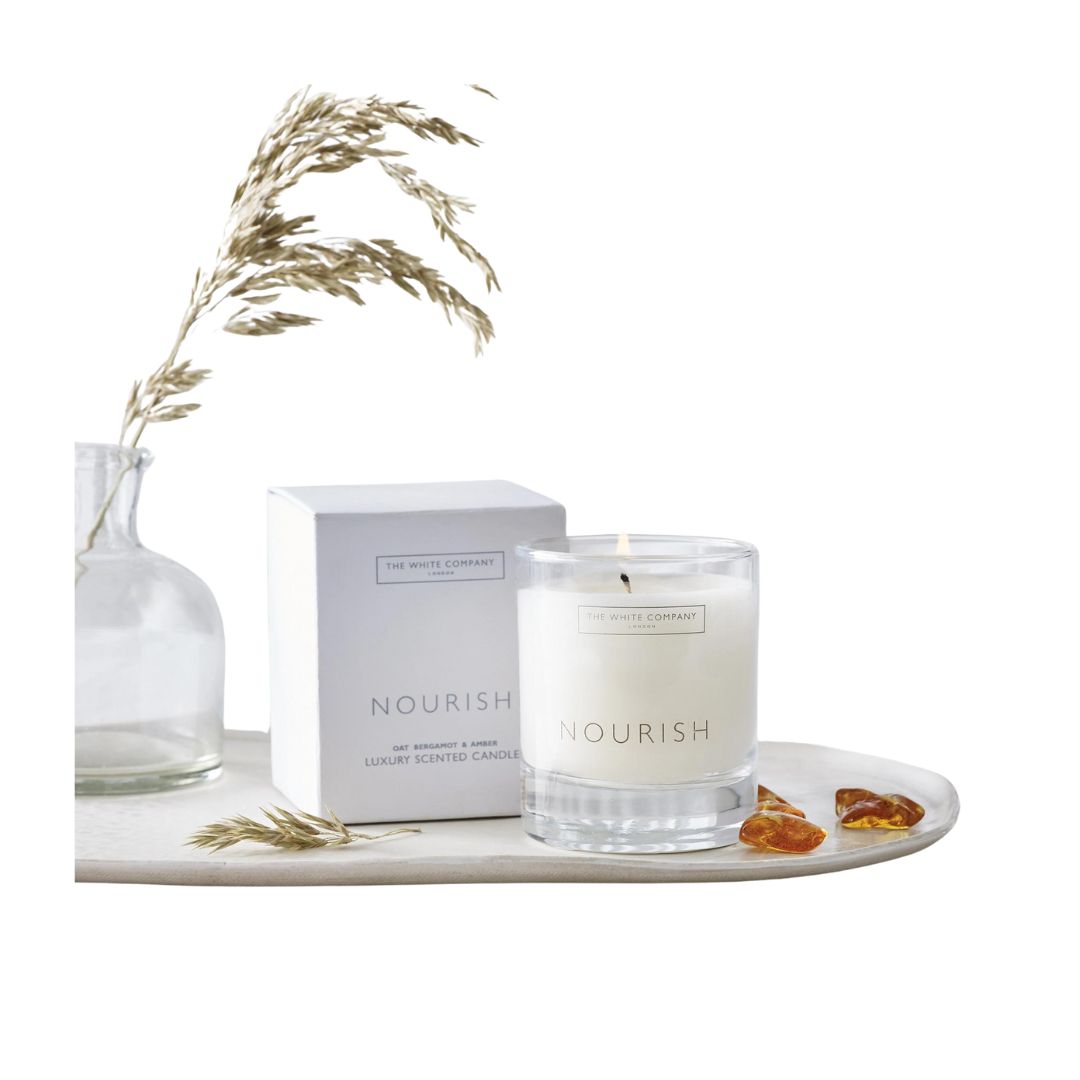I used a self-improvement journal every morning and evening for a week – and was surprised by what happened to my productivity and mental health
Pen and paper at the ready.

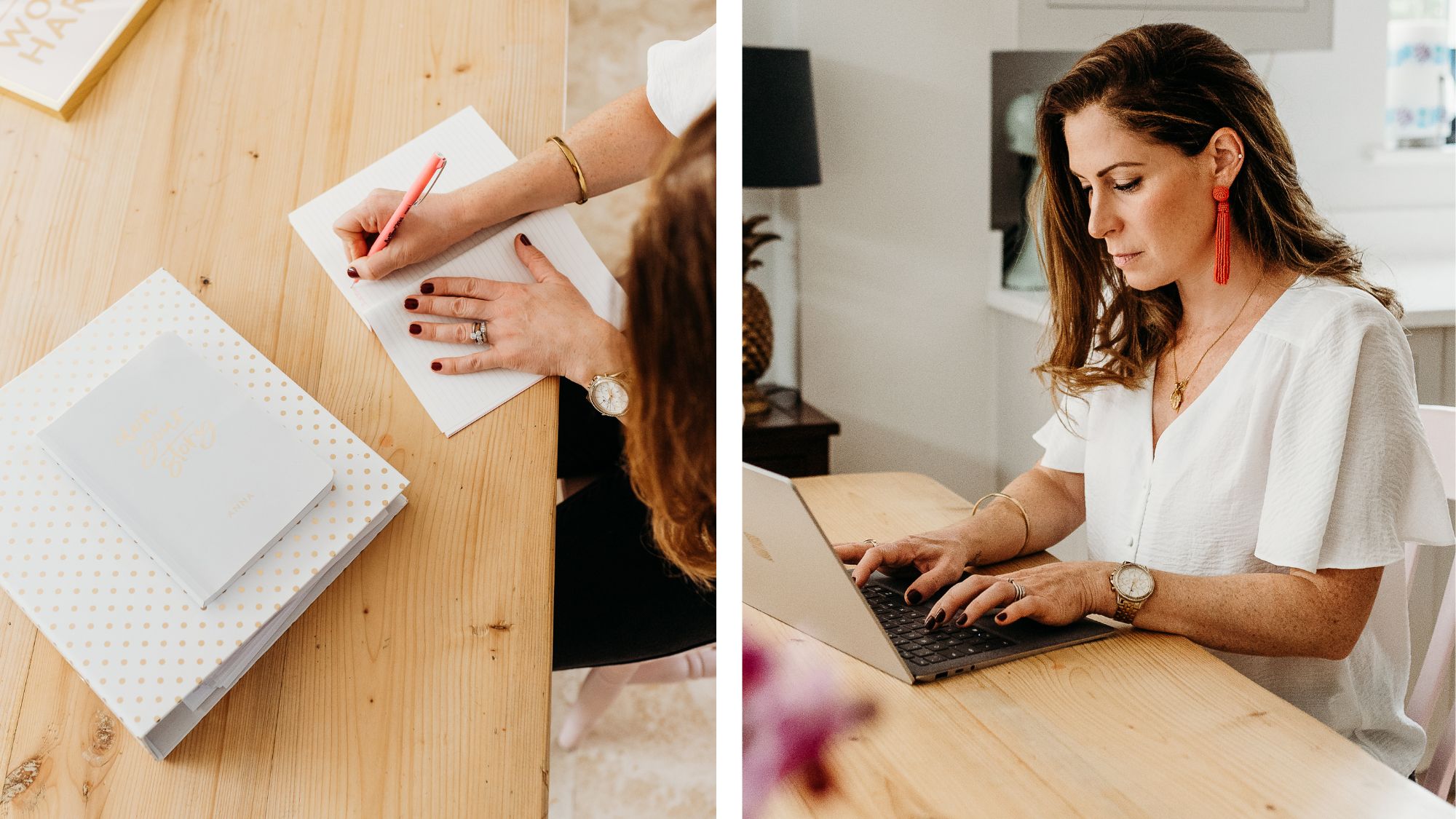
Celebrity news, beauty, fashion advice, and fascinating features, delivered straight to your inbox!
You are now subscribed
Your newsletter sign-up was successful
In case you missed it, journaling is having a moment. In the past few years, interest in the habit has soared, with studies such as this one published in the British Journal of Health Psychology showing that writing about our thoughts and feelings – whether on a screen or on paper – has tangible benefits for both mental and physical health.
Further research has shown that journaling for anxiety can be an effective tool to help quieten your mind and process your innermost thoughts and feelings, with one landmark study from StoryTerrace sharing that 22% of Brits cite journaling as their most useful go-to anxiety aid, with an additional 31% of people sharing that they find it easier to write about their mental health than talk about it.
While my last diary entry was circa 1990, as a writer and all-around stationery geek, I’m here for any excuse to put pen to pretty paper (who doesn’t love a new notebook?). So when I was asked to journal every morning and evening for a week, it’s safe to say my inner teenager was super excited. I was intrigued to see if a twice-daily note would improve my productivity, mental health and more, and if would I be inspired to carry on, too.
Not sure how to journal? We've got a whole guide for you. For my full self-improvement journal review and to read how I got on, keep scrolling. Keen to read more journaling content? Do check out our guides to the best wellness planners and productivity planners, too. Self-reflection journaling prompts, at the ready.
I used a self-reflection journal every morning and evening for a week – here’s what happened
What are the benefits of using a self-improvement journal?
As anyone who has ever scribbled their innermost feelings down in a (preferably lockable) diary will attest, there are so many benefits to journaling. For me, the practice conjures up images of being in my childhood bedroom, scribbling furiously in my diary about some teenage angst and fervently hoping my sibling wouldn’t discover it.
Many (many) years later, and I’m learning that what I assumed was just a writerly way to spend my downtime was actually doing me loads of good. Not only was I honing my writing skills (which would prove to be crucial in my career), but I was unwittingly boosting my mental health – the psychological benefits of journaling are myriad.
“Journaling has so many benefits that will improve both mental and emotional wellbeing,” explains psychotherapist and anxiety expert Kamalyn Kaur. “It’s a great way to express and explore your emotions, as writing them down and reflecting is a great way to process and make sense of your feelings.”
Celebrity news, beauty, fashion advice, and fascinating features, delivered straight to your inbox!
Not just that, but...
1. It improves emotional regulation and self-awareness
“Acknowledging and processing negative emotions gives you a space to frequently decompress, release, and work towards a more positive, healthier mindset,” says Kaur. “Regular journaling encourages self-reflection, helping you gain an insight into your thoughts, behaviours, and patterns, leading to a better understanding of how you work, what triggers you, and how you show up in your life – which in turn can help you to better communicate your emotional needs to those around you.”
2. It decreases anxiety and depression
The simple act of writing things down can help alleviate the symptoms of depression and anxiety (although if you are concerned about your mental health, always seek professional advice).
“Journaling can provide a valuable outlet for pent up emotions,” explains Kaur. “Writing your thoughts, feelings, and concerns can be a cathartic experience, helping to alleviate stress and anxiety, as well as allowing you to brainstorm solutions and see problems from a different perspective. When things seem overwhelming, writing them down and seeing them written down in black and white can help with a clearer understanding of them.”
3. It helps us to sleep better
In what is surely great news for everyone, studies (such as this one, published in the Journal of Experimental Psychology) show that journaling about your worries before bed can help improve sleep quality, reducing the whirr of racing thoughts that can interfere with restorative slumber. Remember when we were all told to keep a notepad by our bed? Turns out, that’s great advice.
4. It helps build resilience
"Journaling can aid in emotional processing and resilience-building," says wellbeing coach and founder of The Mind Tribe, Anji McGrandles. "Research published in the Journal of Traumatic Stress suggests that expressive writing can help individuals process traumatic experiences and develop greater psychological resilience over time."
5. It boosts creativity and cognitive function
One of the joys of journaling – and one I was about to discover – is that there’s really no right or wrong way to do it. You’re free to listen to your inner voice, and choose what to commit to paper – and when your brain is given free rein, you maybe surprised with what crops up for you. In much the same way as many of us come up with our best ides on a run or in the shower – quietening the chatter in our mind allows space for creativity to thrive.
Additionally, studies have shown that expressive writing can even improve working memory and processing speed, meaning you’re literally improving your brain as you write.
How I got on using a self-improvement journal every morning and evening
Even before I was aware of all the benefits, I couldn’t wait to get started on this challenge – and it was serendipitous that I just happened to have a gorgeous Lovendu wellbeing journal to try out, complete with guides and prompts to follow (handy if you’re a journalling newbie).
Once I’d decided which pen to use (a crucial decision, I think you’ll agree), it was time to write.
Days one to three
To start with, I chose an evening when I’d managed to get the kids into bed a little earlier than usual and made a proper ritual out of my journaling time. I lit a candle, popped on some comfy athleisure wear (ok, my pyjamas) and made myself a decaf cuppa. And guess what? I had no idea what to write. All the prompts in the journal weren’t helping, so I ended up making a list of things I needed to do the next day, which, truth be told, wasn’t super relaxing. (Note to self: a wellbeing journal is not a to-do list.)
That said, I knew I had to try a bit harder. Being so used to writing for work, I reminded myself that no one was going to read my journal – so I could literally write anything I wanted, with no fear of judgment. Once I’d realised this, it was nothing short of revelatory. In my daily life, the only things I write are for work (public) and on social media (very public) and it felt oddly freeing to know that this was for my eyes only.
Not one to give up easily, I decided to write down just three things I was grateful for that evening – one of them being snug and safe at home, listening to the wind and rain lashing outside. Usually, I’d be nodding off on the sofa in front of some delightfully trashy reality show only to wake with a start an hour later, but this evening, already in my PJs and feeling calm and relaxed, I decided to go straight to bed. Given I’m always on the quest for more sleep, this felt like an unexpected win.
Day two and full disclosure: I found journaling in the morning way harder than in the evenings. With three children, a dog, a husband and a job, finding even a couple of spare minutes before 9 am is tough. Once again, the temptation to turn my journal entry into a must-do-today list was strong, but I managed to squirrel myself away for a few moments and tapped out some thoughts on my phone, with the intention of writing them up in my journal later on.
Feeling I’d failed a little, I turned to the experts for advice on how to make the most of the rest of my week – and I’m glad I did, as it turns out, you can (and should) dial down the noise on making it perfect (who knew?)
“There are so many products and techniques that target the idea of "journaling". But it’s honestly just about sitting down with a pen and paper - or a device, if you’re more of a digital native - and letting things flow,” counsellor Georgina Sturmer told me. “Start by identifying something that you’re thinking and something that you’re feeling. See what happens from there. If you find it hard to find words, then remind yourself that it’s not about completing an academic exercise. It’s about creating something that feels like an honest reflection of what’s going on inside.”
This was actually a valuable lesson: we tend to think of journaling as an indulgent self-care activity, but in fact, it doesn’t matter where or when we do it – what counts is that we do it. So, I ignored my critical inner voice and made do. And you know what? When I came to write properly later that day, I found it so much easier. Perhaps half the battle is letting go of the expectations we place on ourselves.
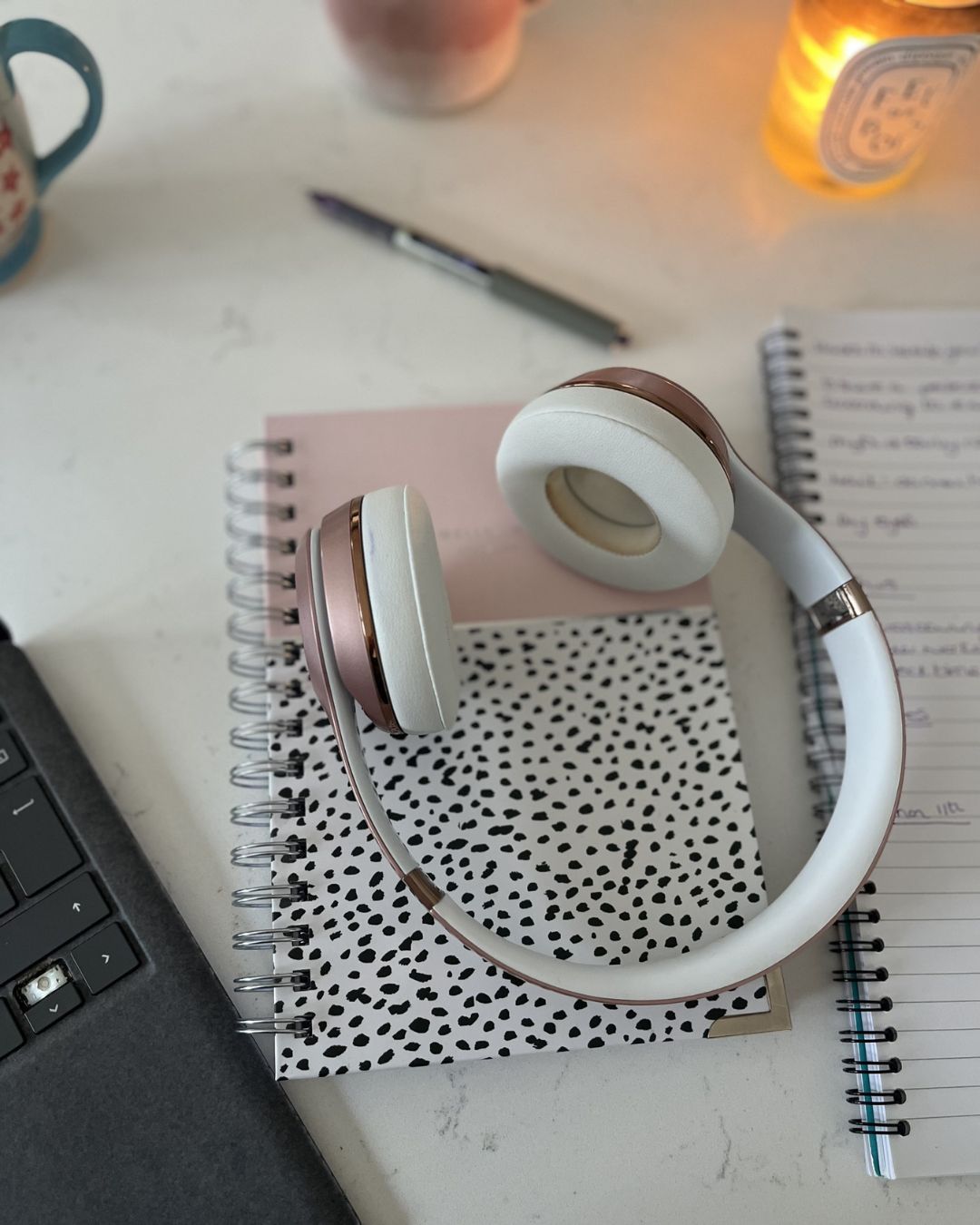
The journal Anna used for her week
Days four to seven
Once I’d let go of trying to journal perfectly (easier said than done), I was able to go with the flow and allow my thoughts to guide me – which, I believe, is exactly what I was supposed to be doing – so if you’re keen to try journaling and struggle with relinquishing control, it might be worth spending a little time working out how you can achieve this!
Initially, I confess that even though I was excited to try it, I did view it as just another item to tick off my never-ending to-do list. However, as the week went on and I immersed myself in the experience, I began to look forward to my writing time – despite it also being my day job.
Where I started the week doing the bare minimum, I ended up relishing a quiet half hour or so to sit with my thoughts and work through things in my head – I absolutely felt calmer and more in touch with my emotions during the experiment.
As for my productivity, once I’d carved out some time in the morning to jot down a few points (I worked out that just after the school run was the best time for me), I definitely felt more organised and motivated to crack on with my day – plus, I was determined to have something positive to write about that evening, which served as a good incentive to be productive.
And as for my sleep – I can’t remember the last time I consistently went to be at a decent time all week. It’s safe to say that both my body and my brain benefited from my week of journaling.
While my why may have changed (my journal is less scribbling the name of my future husband and bemoaning my friendship dramas, more gratitude for the small things mixed with a little thought-dumping) this week has shown me that I still get a kick out of keeping a diary.
Shop MC UK's go-to journaling aids now:

Anna Bartter is a freelance journalist who writes about health, fitness and women's lifestyle for publications including Women's Health, Stylist, The iPaper, Metro and Psychologies, among others.
She's always on a quest to find a variety of fun and functional workouts that give you the most bang for your workout buck and she's passionate about championing movement for everyone's mental and physical wellbeing.
